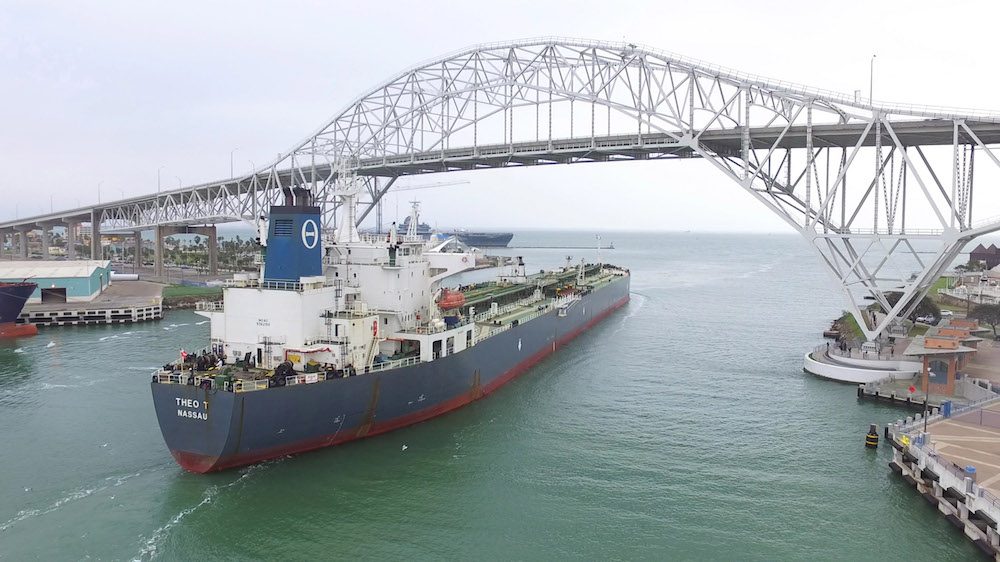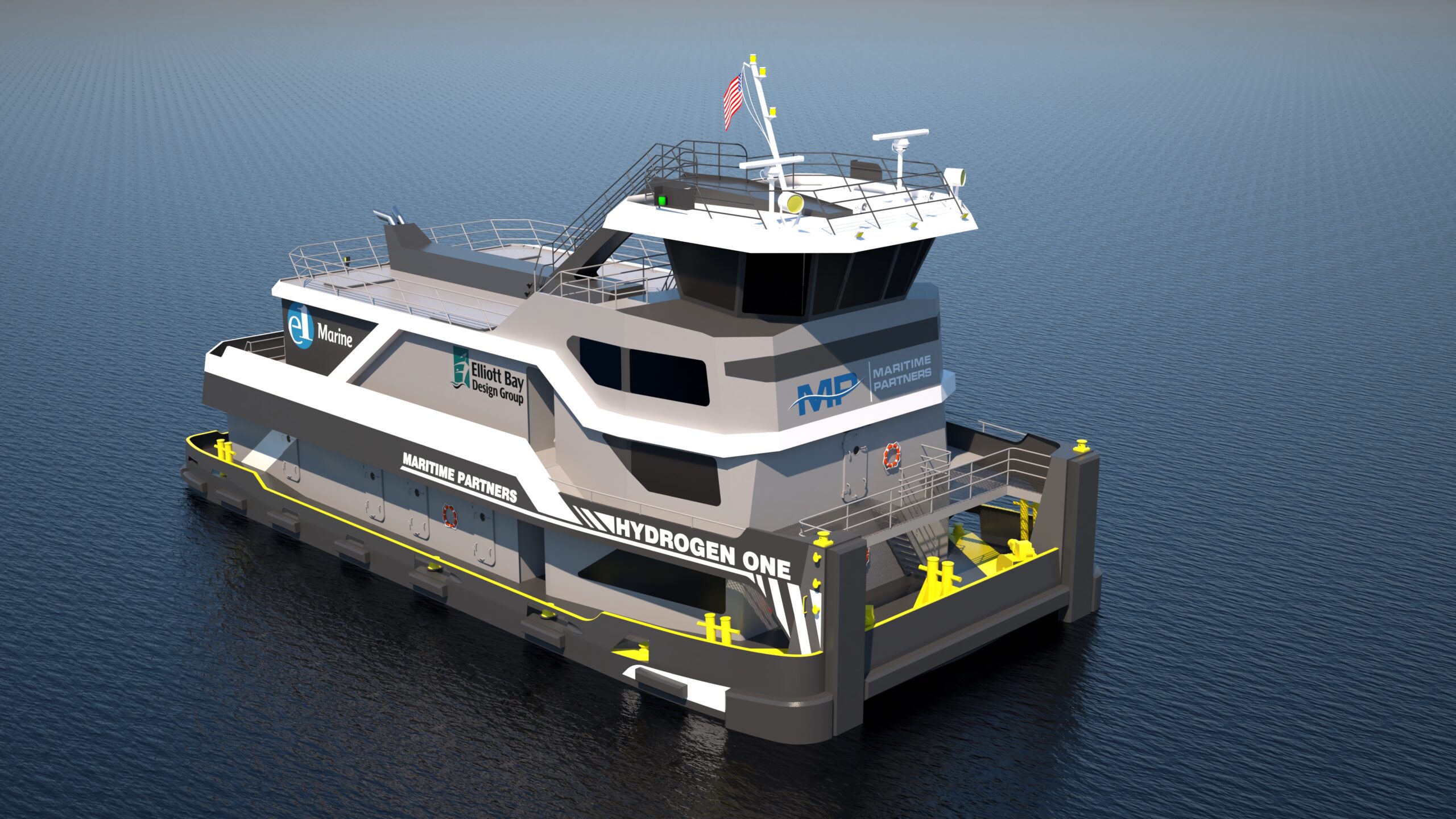The oil tanker Theo T departs the port of Corpus Christi with the first export cargo of US crude oil after the United States government repealed a 40-year ban on the export of crude oil in December 2015. Picture taken December 31, 2015. Photo credit: Port of Corpus Christi
By Serene Cheong (Bloomberg) — The latest standoff between the U.S. and Iran may be leaving oil-tanker owners in more of a bind than in previous years.
As the U.S. reimposes sanctions on the Islamic Republic, firms that help ferry Iranian oil risk losing access to the American financial system, similar to earlier in the decade when such measures were enforced. Additionally, this time around, they’ll have to contend with being cut off from the booming business of transporting crude pumped from shale fields in Texas or wells in the Gulf of Mexico, according to shipbroker Braemar ACM.
The U.S. is shipping record amounts of crude following the end of an export ban in late 2015, a few months after Iran and world powers reached a deal that eased sanctions on the Middle East nation in exchange for curbs on its nuclear program. After President Donald Trump pulled out of that accord earlier this month, the jump in American shipments is making tanker owners consider whether to stick with or shy away from the Persian Gulf state.
“If you’re an operator of young, modern tonnage that can berth and lift cargoes from the U.S., you won’t want to be exposed to Iran,” said Anoop Singh, an analyst at Braemar ACM. “Vessels associated with Iranian oil are likely to be banned from U.S. oil trade for about two years –- and this would matter more now that the U.S. exports its crude oil.”
Shipowners will have to make a decision — to transport Iranian oil and petroleum products or shun dealings with OPEC’s third-largest producer — at a time when they are trying to revive their business after years of malaise from a global oversupply of ships and thin margins. They are also facing higher expenses from looming regulation seeking to lower emissions.
While the U.S. may not currently feature among the biggest clients of some shipowners, few can afford to turn their backs to a market from which both exports of crude as well as refined fuel are rapidly rising. With more shale oil finding its way to the Gulf Coast for exports, or being diverted to domestic refineries to make products that are shipped abroad, more tankers of different classes are seen being drawn in to American ports.
“With a spike in exportable U.S. crude and fuel comes a push to move more barrels faster,” Singapore-based Singh said in an interview. “This has encouraged more dredging works at shallower harbors, supporting demand for everything from small oil-product carriers to supertankers with the capability of carrying two million barrels of oil to destinations as far away as Asia.”
For instance, China — the world’s biggest oil importer — purchased about 3.9 million metric tons of crude from the U.S. in the first three months of 2018, eight times higher than imports in the first quarter of 2017, according to customs data. South Korea also imported twice as much U.S. oil in February compared with the same month a year earlier, data from the Energy Information Administration show.
Iran Risk
Meanwhile, Iranian oil supplies are forecast to decline because of the renewed U.S. sanctions. The restrictions may spur international shipping companies, which have carried more than half of the Middle East producer’s exports over the past six months, to pull back from the trade, leaving the country to depend much more on its own tanker fleet, according to Bloomberg oil strategist Julian Lee.
Oil prices have jumped in recent weeks on speculation that supplies may be disrupted as geopolitical tensions flare. Global benchmark Brent crude traded at $78.94 a barrel at 11:26 a.m. in London, after having closed at the highest level since November 2014 on Tuesday.
“We’ve seen some owners drop provisional charters for Iranian oil loadings in the last week or two since Trump’s decision on renewed sanctions,” said Braemar ACM’s Singh. “Shipowners with existing relations with Iran could be bargaining for a better premium over wider market rates, or they could have retracted their ships as a precautionary move as they await instructions from their P&I groups.”
Shipowners had been charging an additional 7.5 to 10 worldscale points for Iran-related charters this year in the run up to Trump’s announcement, compared with bookings for moving crude from other Middle East nations to Europe, according to Singh. That has since jumped to an extra 20 or more worldscale points, he said.
“A bigger premium would justify the political and economic backlash they’re exposing themselves to, and to make up for the markets they’ll potentially lose access to,” Singh said.
© 2018 Bloomberg L.P

 Join The Club
Join The Club











